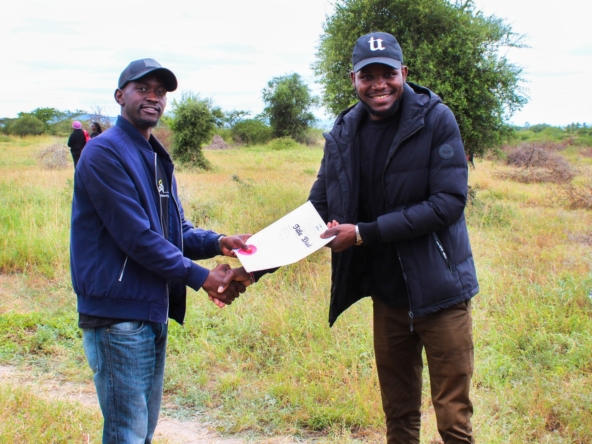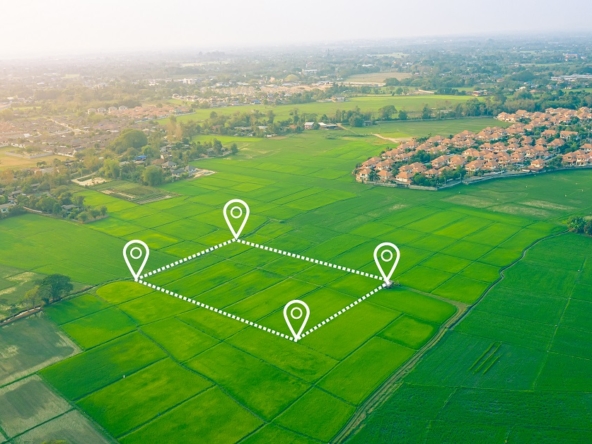If you own land in Kenya or plan to buy property soon, a recent Supreme Court decision could have a major impact on you.
The Supreme Court of Kenya delivered a landmark ruling in the case of Dina Management Limited vs County Government of Mombasa & Others. The case has reshaped how we understand land ownership, title deeds, and due diligence in Kenya.
In this blog, we break down what the judgment means and how it affects current and future landowners across Kenya.
Summary of the Supreme Court Land Ruling in Kenya (2025).
The Supreme Court case — Dina Management Limited v County Government of Mombasa & 5 Others — revolved around land that was originally public land but was irregularly allocated to private individuals. Over time, it was sold and transferred multiple times, ending up with Dina Management Limited, who held a registered title deed.
Dina Management believed it was the rightful owner, having purchased the land legally and in good faith. However, the County Government of Mombasa challenged the ownership, arguing that the land had been set aside for public use and was never lawfully available for private ownership in the first place.
The Key Legal Questions:
- Is a registered title deed conclusive proof of land ownership?
- Can someone lose land even if they bought it innocently and have legal documents?
- Does the doctrine of “indefeasibility of title” protect a buyer whose title is rooted in an illegal or fraudulent allocation?
The Supreme Court’s Decision:
The court ruled against Dina Management Limited, setting several important legal precedents:
- A title deed does not automatically guarantee ownership if the title originated from an unlawful or irregular process.
- Public land cannot be converted into private land through illegal means, even if the buyer is unaware of the irregularity.
- The “bona fide purchaser” doctrine (buying land in good faith) does not override the Constitution and public interest when the land was not available for sale in the first place.
- The Constitution of Kenya, 2010, recognizes public land as protected, and any attempt to privatize it unlawfully is null and void.
In short, the court stated:
“A person cannot purport to obtain good title to land that was never legally alienated or available for private ownership in the first place.”
Major Lessons for Landowners in Kenya
1. Title Deeds Are Not Absolute Proof of Ownership
Just because you have a title deed does not automatically mean you legally own the land. The court ruled that the origin of the title must be valid. If the land was originally grabbed, irregularly allocated, or set aside for public use, that title can be revoked.
What to do:
Always verify the history of the land title from the original allocation, not just the last transaction.
2. Due Diligence Is Mandatory When Buying Land in Kenya
The court stressed that land buyers must conduct thorough due diligence. This includes checking:
- Original allocation records
- Planning approvals
- Status of the land (public or private)
- Any disputes or encumbrances
Tip: Use tools like Ardhisasa or work with a qualified land lawyer and surveyor.
3. Being a Bona Fide Purchaser May Not Protect You
Previously, buyers who purchased land “in good faith” could argue they didn’t know the land had issues. This ruling makes it clear: lack of knowledge won’t save your title if the land was acquired unlawfully.
What Does This Mean for You as a Landowner in Kenya?
– If You Already Own Land:
- Recheck the origin of your title deed
- Verify whether the initial allocation was done legally
- Keep all supporting documents in order (letters of allotment, approvals, consent, etc.)
– If You’re Planning to Buy Land in Kenya:
- Never rely on the title deed alone
- Conduct a full land history search
- Consult professionals — lawyer, land valuer, licensed surveyor
How to Verify Land Ownership in Kenya
To protect yourself, follow these steps:
- Visit Ardhisasa.go.ke to check land status
- Request a search at the Ministry of Lands
- Get a certified surveyor to confirm boundaries
- Hire a lawyer for background checks and legal support
Want Verified, Hassle-Free Land in Kenya? We’ve Got You Covered.
At Rehan Properties, we understand how stressful land buying can be, especially with all the risks now highlighted by the Supreme Court. That’s why we’ve taken every step to make the process easy and transparent for you.
Our projects in Tinga (Magadi Road) and Konza come with:
- Legally obtained titles
- Supporting documentation available for inspection
- Clean ownership history
- Professional processes from allocation to transfer
But don’t just take our word for it — we actually encourage you to verify if you’d like.
Site visits: Every Wednesday and Thursday.
Call us now to book your spot: 0111 026 600 / 0115 682 975
Final Word
The recent Supreme Court decision shows just how risky land transactions can be if due diligence is not done. Don’t get caught in a legal nightmare — work with a trusted partner who offers transparency, verified ownership, and full documentation upfront.
Buy clean, verified land. No shortcuts. No surprises. Just peace of mind.





